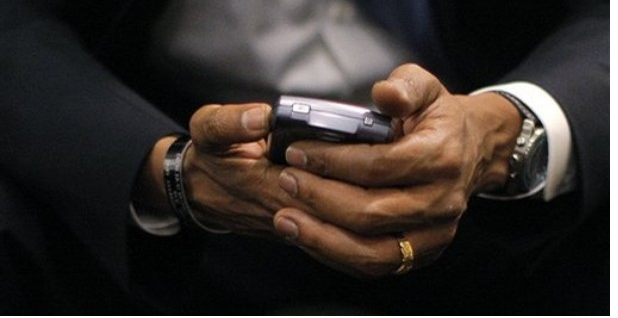BlackBerry federal use 'up', but its niche market days are over

While BlackBerry maker Research in Motion reels from the news that comScore's latest figures show HTC knocking the company off the top five list in a further dwindling of U.S. mobile market share, the company was seemingly quick to state that its BlackBerry smartphones are still useful for what they were intended for: governments.

Scott Totzke, RIM senior vice-president of BlackBerry security, who orchestrates the sale of the company's smartphones to the U.S. government, says optimistically that sales are generally on the "up", reports Bloomberg.
"Compared to the enterprise over the last year and a half or so, the federal business on whole is up,” he said. “The employee base is shrinking, so if we’re looking at a market with fewer employees and our install base is stable to slightly up, that would seem to indicate that we have an increasing market share."
All good and well, considering the leader of the free world retained his BlackBerry despite government officials warning against it. The fact remains that the BlackBerry, when hooked up to the enterprise server network, remains one of the most secure devices ever made.
But others are catching up, and therein lies the rub, as AllThingsD reports.
The humble BlackBerry was awarded FIPS-140-2 certification, required by U.S. law for security necessary in federal government. It is also the only platform to be "recommended" fit for medium-grade government secure functions by the CESG, the IT security group, a side project of the UK's third intelligence agency, GCHQ. Government issued BlackBerrys use 3DES and AES for data traffic and the encryption of local data, ensuring that secret material stays classified.
Meanwhile, the UK government continues its ban of iPhones for work communications due to its lack of CESG certification, despite the smartphone being technically capable of non-national security related secure transmissions.
But other non-BlackBerry phones, including a handful of Android devices are now capable of secure government use, and Apple is reportedly seeking certification for the iPhone. Just because it isn't yet certified doesn't mean the device isn't already capable. It just needs the stamp of a government official.
With this, governments don't need to keep their contracts with RIM if it doesn't want to. It could, but in an age of austerity and budget cuts, governments need to save what they can. If Android sits as a better option for the taxpayers, then so be it.
With bring-your-own-device policies, and so many opting to buy Android and iPhones, turning their consumer backs on the BlackBerry brand, RIM could be in for even more of a turbulent time with its government partners.
Related:
- comScore: RIM, Microsoft face mobile market share crisis
- RIM executive calls Google Play "chaotic cesspool"
- Can RIM close the BYOD gap with Mobile Fusion?
- Research in Motion sued for BlackBerry patent infringement
- BlackBerry maker denies consumer market retreat
- UK intelligence agency 'recommends' BlackBerry for security; iPhones still banned
- CNET: First e-mailing prez: Obama keeps his BlackBerry